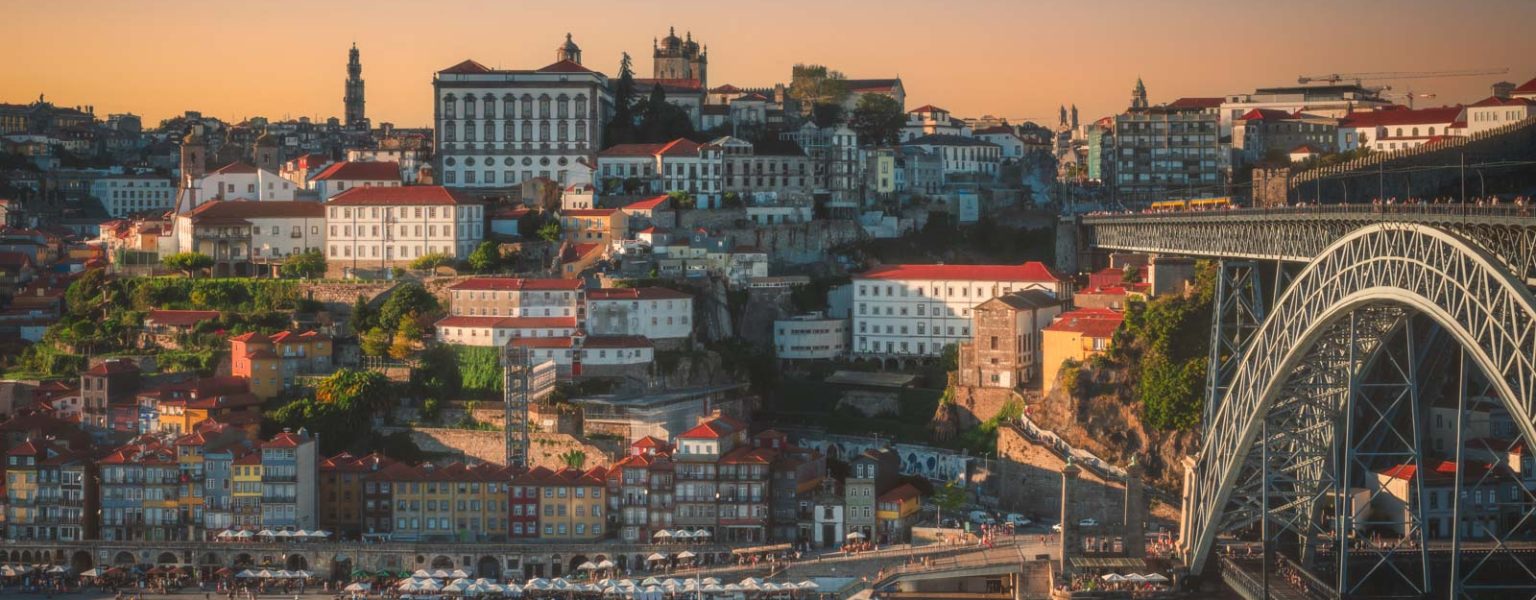Welcome to the enchanting world of Portugal. We just traveled Portugal from north to south and fell in love with this country. Tucked away on the Iberian Peninsula, Portugal is no longer Europe’s best-kept secret. People are flocking for space at its pristine beaches kissed by the Atlantic waves, historic towns echoing tales of old, and a culinary scene that leaves every palate craving for more. As we dive deep into the heart of the country, we’ll uncover nineteen fascinating facts about Portugal that paint a picture of this nation’s history, culture, and spirit.
Fun Facts About Portugal
1. Portugal’s Rich History and Global Empire
The Anglo-Portuguese Alliance, a treaty between Portugal and England, is the oldest and longest-running alliance between modern nations, showcasing Portugal’s diplomatic prowess. After a period of dictatorship, the country became a democratic republic in 1976, now known as the Portuguese Republic.
2. Port: The National Drink
British traders, infatuated by the distinct taste, began importing it in large volumes, popularizing it overseas. Throughout centuries, this delectable beverage has been synonymous with Portuguese culture. The city of Porto, in particular, boasts historic wine cellars, offering a deep dive into the legacy of Port wine.
There are several types of Port wine, including Ruby, Tawny, White, Rosé, and Vintage, offering a diverse range of flavors and styles to suit any palate.
3. Language and Culture
Beyond its territorial discoveries, Portugal left an enduring linguistic mark on its former colonies. Countries like Brazil, Mozambique, Angola, and East Timor still regard Portuguese as an official language.
One fun fact about Portugal’s culture is the symbol of the rooster, which is associated with a legend about a dead rooster miraculously proving a man’s innocence. This colorful symbol can be found throughout the country, representing the Portuguese people’s rich history and culture.
4. The world’s oldest bookstore is in Lisbon
Lisbon, Portugal’s capital, is home to the world’s oldest operating bookstore, Livraria Bertrand, founded in 1732. Over the centuries, this sanctuary for books has drawn Portuguese intellectuals and avid readers, establishing itself as a must-visit hotspot for book enthusiasts touring the city. I cannot believe we didn’t go inside, but that gives us a reason to go back soon!
5. Fado: The Soulful Melody
The expression “oxalá,” derived from the Arabic “inshallah,” meaning “God willing,” is a testament to the influence of other cultures on Portuguese music.
Today, Fado performances continue to captivate audiences around the world, demonstrating the timeless appeal and emotional depth of this beautiful music genre. We went to a Fado show in Lisbon and even though we didn’t understand the lyrics, we could feel the emotions and were captivated by the talent of the guitarists.
6. Cork Oak Forests
These trees, unique to southwestern Europe, have a remarkable ability to regenerate their bark, making cork production sustainable. From wine stoppers to fashion accessories, the versatile cork finds its way into various products exported globally.
7. Geographical Wonders
And we can’t forget The Algarve. Stretching along the southernmost tip of Portugal, the Algarve boasts a coastline dotted with limestone caves, golden beaches, and turquoise waters. This region, renowned for its natural beauty, attracts millions of tourists annually, drawn to its sun-soaked shores and vibrant marine life.
8. Lisbon Earthquake of 1755
9. The Mystique of Sintra
But it’s not just about the buildings. Sintra is also home to some of the most magical gardens in Portugal, like Monserrate Park, Pena Park, and Quinta da Regaleira. These spots offer visitors a chance to immerse themselves in nature and soak up the town’s magical vibe. Trust me, you don’t want to miss out on this! Just be prepared for crowds.
10. Lusitanian Roots
11. Portuguese Tiles
The word ‘azulejo’ is derived from the Arabic word ‘az-zulayj’, meaning ‘polished stone’. The art of making these tiles was introduced to Portugal during the Moorish invasion of the Iberian Peninsula.
You’ll find these tiles embellishing various structures, from churches and palaces to railway stations and ordinary houses. They serve not only a decorative purpose but also a functional one, helping regulate the temperature inside buildings and preserving the walls from dampness.
The themes depicted on these tiles are diverse. Some tiles illustrate scenes from the Bible, historical events, or traditional Portuguese scenes of fishing, farming, and other rural activities. Others are purely decorative, showcasing beautiful geometric patterns or floral motifs.
12. The Knights Templar
In Portugal, the Templars played a pivotal role in the Reconquista – the centuries-long battle to reclaim Iberian lands from Moorish rule. King Afonso Henriques, the first King of Portugal, granted the Templars extensive lands in central Portugal in recognition of their service. These lands became the Order’s headquarters, where they built formidable castles and fortresses, including the iconic Convent of Christ in Tomar.
The Templars’ influence extended beyond military matters. They contributed significantly to Portugal’s development, introducing advanced agricultural techniques, promoting trade, and contributing to the country’s administrative and judicial systems. Their wealth and power grew, but so did the suspicion and envy of other European powers.
Despite the dissolution of the Templars in the early 14th century, their legacy lived on in Portugal. King Dinis cleverly maneuvered to protect the Templar’s assets and members, reconstituting them into a new order – the Order of Christ. This Order would later sponsor many of Portugal’s Age of Discovery voyages, including those of Vasco da Gama and Bartolomeu Dias. Don’t miss the Initiation well at Quinta da Regaleira which is believed to have been used by the knights. Read more at 14 Best Things to Do in Sintra, Portugal
Madeira and Azores: Portugal’s Island Jewels
Madeira, located off the northwest coast of Africa, is renowned for its namesake Madeira wine, vibrant flower gardens, and New Year’s fireworks display, which is one of the largest in the world. The island’s capital, Funchal, offers a blend of old-world charm and modern amenities, with its historic cathedral, bustling farmers’ market, and luxury resorts.
The Azores, situated roughly in the middle of the Atlantic Ocean, are a nature lover’s paradise. Comprising nine volcanic islands, the Azores are known for their lush landscapes, rich biodiversity, and abundant marine life. São Miguel, the largest island, is famous for its geothermal hot springs and crater lakes, while Pico Island boasts Portugal’s highest mountain peak.
14. Culinary Traditions
Pastéis de Nata: This delightful pastry, with its flaky crust and creamy custard filling, is a sweet embodiment of Portuguese culinary traditions. Originating from the Jerónimos Monastery in Belém, pastéis de nata have now become a global sensation, relished by gourmands worldwide.
Portugal has had a significant influence on global cuisine, introducing ingredients like chili peppers, tomatoes, and potatoes to various countries. Portuguese traders played a crucial role in spreading these ingredients across the world, shaping the flavors and dishes we know and love today.
One of the most notable examples of Portugal’s culinary influence is the introduction of tempura to Japan. This technique of coating and frying vegetables, fish, and seafood in a batter originated in Portugal and was later adopted and perfected by the Japanese, becoming a staple of their cuisine.
15. Architectural Marvels and World Records
Distinctive to Portugal, Manueline architecture flourished during the reign of King Manuel I. It is characterized by its intricate ornamentation, inspired by maritime motifs, the Age of Discovery, and Christian symbolism. This style stands as an embodiment of Portugal’s golden era of exploration.
16. Religion and Spiritual Significance
Today, Fatima attracts millions of pilgrims from around the world, seeking spiritual healing and connection at the Sanctuary of Fatima. This hallowed location stands as an emblem of grace and mercy, attracting visitors of various life paths and religious beliefs.
17. Famous Portuguese Personalities
Portugal has produced several notable personalities who have left their mark on the world stage. Cristiano Ronaldo, a football legend, has become a household name and a symbol of Portugal’s passion for the sport.
Another famous Portuguese figure is Vasco da Gama, a renowned explorer who discovered the sea route from Europe to India, opening up new trade routes and opportunities for global exploration. These individuals exemplify the spirit of innovation and determination that defines the Portuguese people.
18. Unique Portuguese Traditions and Festivals
Another tradition that holds a special place in the heart of the Portuguese is the celebration of Sao Joao Festival, particularly in the city of Porto. This midsummer party, held on the night of June 23, is marked by the release of illuminated flame-propelled balloons, dancing in the streets, and hitting each other’s heads with soft plastic hammers. The festival, which is a tribute to Saint John the Baptist, culminates in a grand display of fireworks by the Douro River, symbolizing the vibrant and lively spirit of Portuguese culture.
19. The Trams of Lisbon
Frequently Asked Questions
Portugal is one of the oldest nations in Europe and was once a powerful maritime nation. Lisbon, the capital, is actually older than Rome! It’s also one of the most peaceful countries in the world and has over 250 million Portuguese speakers around the globe. Plus, it has the world’s oldest bookstore, and drugs are decriminalized.
What is the most interesting fact about Portugal?
Portugal is an interesting country to discover! Not only does it hold the title of being home to the most western point in mainland, continental Europe, but it also has the oldest diplomatic alliance in the world with England. Furthermore, Portugal is the biggest cork producer in the world, making up 34% of the world’s cork forests.
Who is the famous Portuguese football player?
Cristiano Ronaldo is a renowned Portuguese football player and an icon of the sport, representing Portugal’s passion for the game.
What is Fado music?
Fado music is a traditional Portuguese genre known for its melancholic and soulful melodies.
Where is the world’s oldest operating bookstore located?
If you’re looking for the world’s oldest operating bookstore, look no further than Livraria Bertrand in Lisbon, Portugal.
And these are some fun facts about Portugal, to get you excited about visiting this incredible land. Do you have more interesting Portugal facts ti share? Let us know in the comments below!


